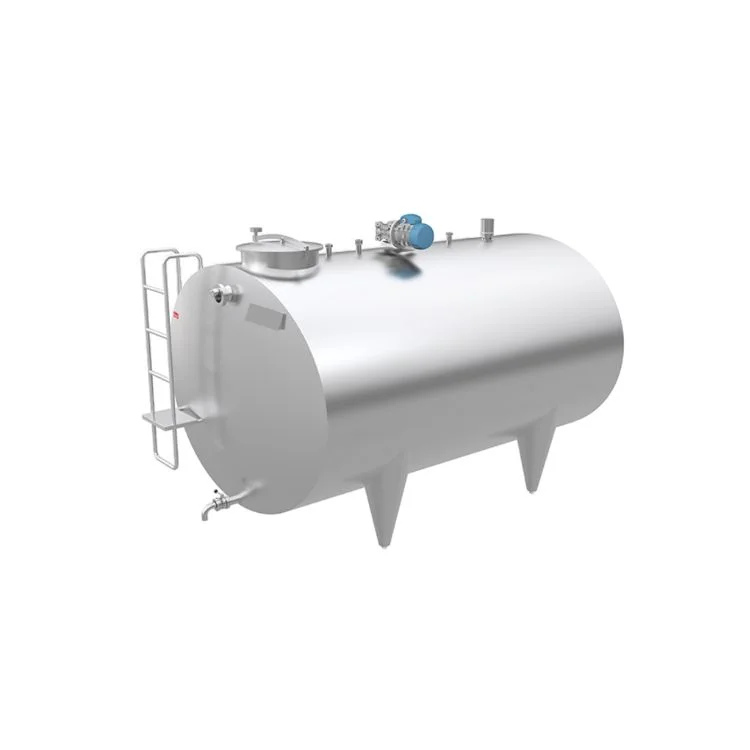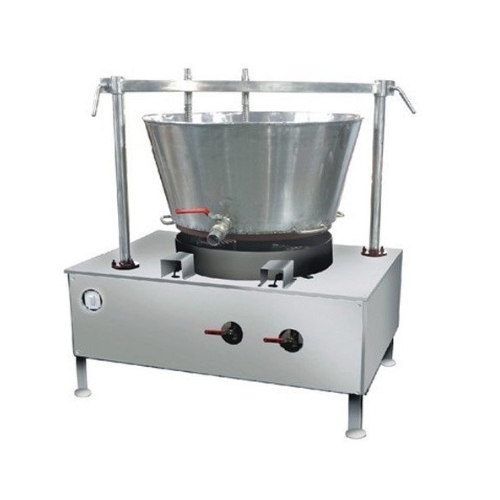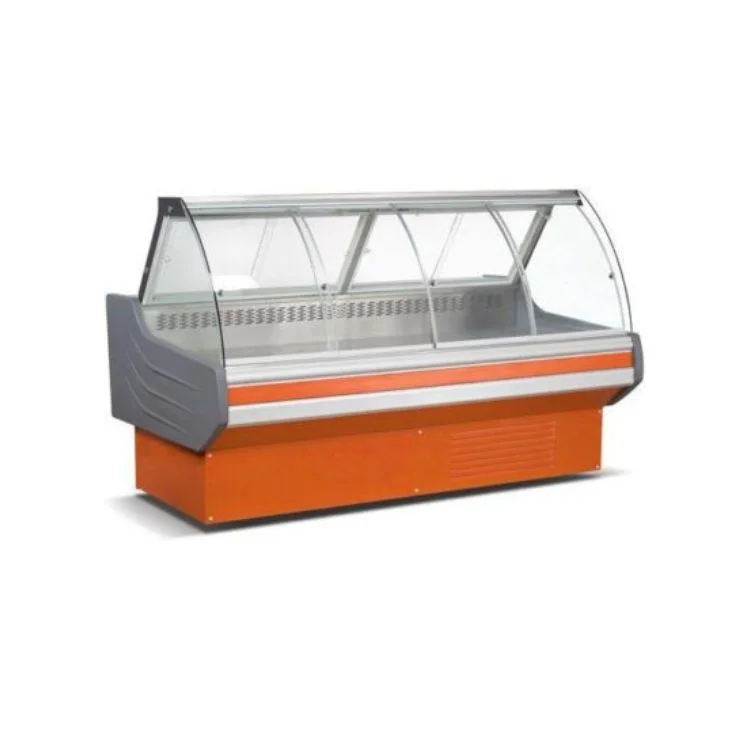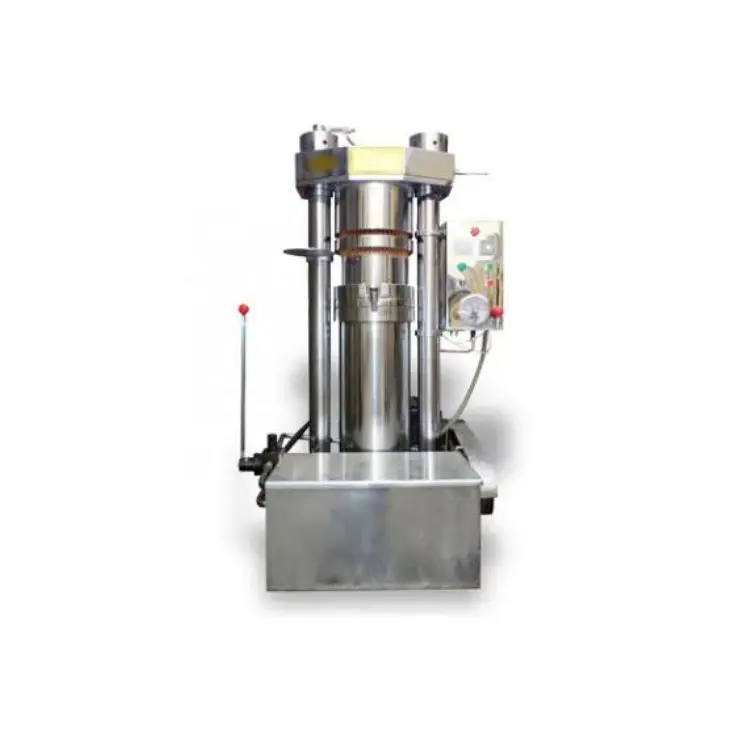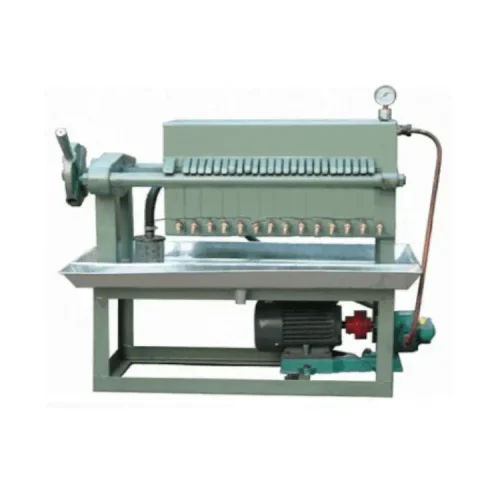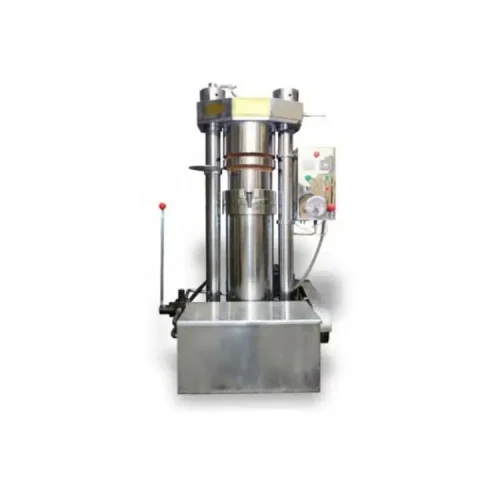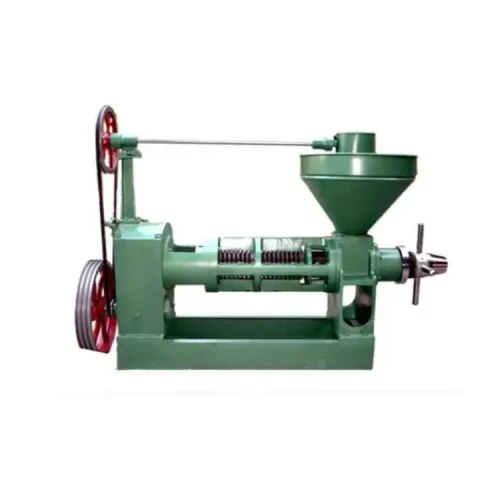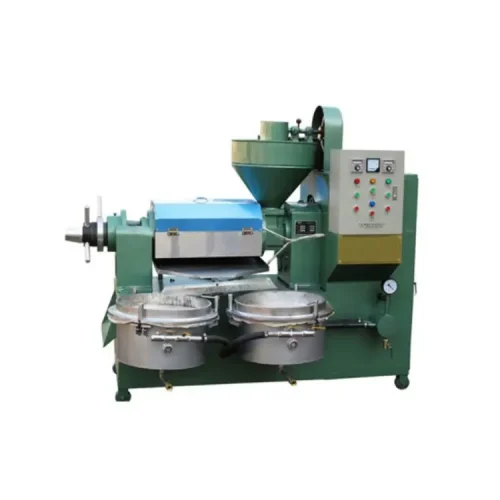Choosing the Right Hydraulic Oil Press – Factors to Consider for Optimal Performance
When it comes to optimizing the performance of your hydraulic oil press, choosing the right equipment is key. With so many options available, it can be overwhelming to determine which one is the best fit for your needs. That’s where this article comes in. We’ll guide you through the factors you need to consider to ensure optimal performance from your hydraulic oil press.
First and foremost, you need to look at the capacity of the machine. Consider the volume of oil you will be pressing regularly and choose a hydraulic press with a suitable capacity. Next, take a closer look at the pressure rating. Higher pressure means more force is applied to the oil, resulting in better extraction efficiency.
Another important factor to consider is the quality of the materials used in the construction of the hydraulic oil press. High-grade materials ensure the durability and longevity of the equipment. Additionally, pay attention to the design and functionality of the press. Easy operation and maintenance will save you time and effort in the long run.
By considering these factors, you can select the right hydraulic oil press for your specific needs and optimize its performance for maximum efficiency and productivity.
Importance of choosing the right hydraulic oil press
When it comes to optimizing the performance of your hydraulic oil press, choosing the right equipment is key. With so many options available, it can be overwhelming to determine which one is the best fit for your needs. That’s where this article comes in. We’ll guide you through the factors you need to consider to ensure optimal performance from your hydraulic oil press.
Factors to consider when selecting a hydraulic oil press
Selecting the right hydraulic oil press is crucial for achieving optimal performance and maximizing efficiency in your oil extraction process. The wrong choice can lead to subpar results, wasted resources, and increased downtime. By investing time and effort into choosing the right equipment, you can avoid these issues and set your operations up for success.
Capacity and power requirements
One of the first factors to consider when choosing a hydraulic oil press is its capacity. The volume of oil you’ll be pressing regularly should align with the machine’s capacity. If you choose a press with insufficient capacity, you’ll experience bottlenecks in your production process and may not be able to meet your output goals. On the other hand, selecting a press with excessive capacity can result in unnecessary costs and wasted energy.
Additionally, power requirements should be taken into account. Ensure that the press you choose is compatible with the power supply available in your facility. Whether it’s single-phase or three-phase power, make sure the hydraulic oil press can operate smoothly without overloading your electrical system.
Quality and durability of the press
Investing in a hydraulic oil press made with high-grade materials is essential for long-term durability and reliable performance. The press should be able to withstand the constant pressure and stress involved in the oil extraction process. Look for presses made from materials such as stainless steel, which offer excellent corrosion resistance and longevity.
Furthermore, consider the overall construction of the press. It should be robust and well-engineered to ensure stability and minimize the risk of breakdowns. A well-built hydraulic oil press will not only last longer but also require less maintenance, saving you time and money in the long run.
Efficiency and productivity
The efficiency of a hydraulic oil press is a critical factor to consider. Higher efficiency means better oil extraction and increased productivity. Look for presses with high-pressure ratings, as this indicates the force applied to the oil during the extraction process. Higher pressure leads to better extraction efficiency, resulting in a higher yield of oil.
Additionally, consider the press’s speed and cycle times. A hydraulic oil press with faster cycle times will allow you to process more oil in a given time frame, boosting your overall productivity. Time is money in the oil extraction business, so choosing a press that can deliver efficient and rapid results is essential.
Safety features and regulations
Safety should always be a top priority when selecting any type of machinery, including hydraulic oil presses. Look for presses that comply with industry safety standards and regulations. Safety features such as emergency stop buttons, safety guards, and interlocking systems should be present to protect operators and prevent accidents.
Furthermore, consider the ergonomics of the press. An ergonomic design ensures ease of operation and reduces the risk of operator fatigue or injury. A hydraulic oil press with user-friendly controls and intuitive interfaces will make it easier for your operators to work efficiently and safely.
Maintenance and support
Regular maintenance is crucial to keep your hydraulic oil press in optimal condition and prevent unexpected breakdowns. When choosing a press, consider the availability of spare parts and the ease of maintenance. Look for presses that come with comprehensive maintenance manuals and provide access to technical support.
Additionally, it’s beneficial to choose a press from a manufacturer that offers after-sales support and training. This ensures that you have the necessary resources and expertise to maintain and troubleshoot your hydraulic oil press effectively.
Quality and durability of the Hydraulic Oil Press
To make an informed decision, consider comparing different hydraulic oil press models. Research and compare factors such as capacity, pressure rating, construction materials, efficiency, safety features, maintenance requirements, and after-sales support. Take into account your specific operational needs and budget constraints to narrow down your options.
Read customer reviews and testimonials to gain insights into the real-world performance and reliability of different models. Reach out to manufacturers or distributors for additional information and to clarify any doubts or questions you may have.
Efficiency and productivity
Choosing the right hydraulic oil press is crucial for optimizing the performance of your oil extraction process. Consider factors such as capacity, power requirements, quality and durability, efficiency and productivity, safety features and regulations, and maintenance and support. By thoroughly evaluating these factors and comparing different models, you’ll be able to select a hydraulic oil press that meets your specific requirements and ensures optimal performance.
Investing in a high-quality hydraulic oil press may require a higher upfront cost, but it will pay off in the long run with increased productivity, improved efficiency, and reduced downtime. Don’t compromise on the quality and performance of your hydraulic oil press – make an informed decision and set your operations up for success.
Remember, the right hydraulic oil press can make all the difference in achieving optimal performance and maximizing the yield of your oil extraction process. Take your time, do your research, and choose wisely.
Safety features and regulations
Efficiency and productivity are crucial when it comes to choosing a hydraulic oil press. The capacity of the machine is the first factor you should consider. Think about the volume of oil you will be pressing on a regular basis. Choosing a hydraulic press with a suitable capacity will ensure that you can meet your production requirements without any issues. A press with a smaller capacity may not be able to handle the volume you need, while a press with a larger capacity may be unnecessarily expensive and take up more space.
Next, take a closer look at the pressure rating. Higher pressure means more force applied to the oil, resulting in better extraction efficiency. A hydraulic press with a higher pressure rating will be able to extract more oil from the raw materials, increasing your overall productivity. However, it’s important to strike a balance. Choosing a press with too high of a pressure rating may lead to excessive wear and tear on the equipment, resulting in higher maintenance costs.
In addition to capacity and pressure rating, consider the speed of the hydraulic oil press. A faster press will allow you to process more oil in a shorter amount of time, improving your efficiency. Look for a press that offers adjustable speed settings so that you can adapt to different types of raw materials and extraction requirements. This flexibility will ensure that you can optimize your production process and maximize your output.
Maintenance and support
Safety should always be a top priority when selecting a hydraulic oil press. Look for a press that is equipped with safety features such as emergency stop buttons, safety guards, and overload protection systems. These features will help prevent accidents and injuries in the workplace.
It’s also important to be aware of the safety regulations and standards that apply to hydraulic oil presses in your region. Make sure that the press you choose complies with all relevant safety requirements. This will not only protect your workers but also ensure that you are in compliance with the law.
When it comes to safety, it’s not just about the machine itself. Consider the training and support provided by the manufacturer. A reputable manufacturer should offer comprehensive training for your operators to ensure that they are familiar with the safe operation of the equipment. They should also provide ongoing support and maintenance services to address any safety concerns or issues that may arise.
Comparing different hydraulic oil press models
Maintenance is an important aspect of owning a hydraulic oil press. Regular maintenance will extend the lifespan of your equipment and prevent unexpected breakdowns. When choosing a press, consider the ease of maintenance. Look for features such as easy access to critical components, clear maintenance instructions, and readily available spare parts. These factors will make it easier for you to perform routine maintenance tasks and minimize downtime.
In addition to maintenance, consider the support provided by the manufacturer. A reliable manufacturer should offer technical support and assistance whenever you need it. They should have a dedicated support team that can help troubleshoot issues and provide guidance on maintenance and repairs. This level of support will give you peace of mind knowing that you can rely on the manufacturer to help you keep your hydraulic oil press running smoothly.
FAQs
A hydraulic oil press is a machine that uses hydraulic force to press oil from seeds and nuts. It employs a combination of pressure and heat to extract oil from various raw materials.
The hydraulic oil press works by using a hydraulic cylinder to generate a compressive force. This force is applied to the raw materials (seeds or nuts) placed in the press, causing the oil to be expelled. The process typically involves both pressure and heat to ensure efficient oil extraction.
Hydraulic oil presses are versatile and can be used to extract oil from a variety of seeds and nuts, including sunflower seeds, soybeans, peanuts, sesame seeds, and more.
Hydraulic oil presses are known for their high oil extraction efficiency, low energy consumption, and the ability to maintain the nutritional quality of the oil. They are also suitable for cold pressing, which helps preserve the natural flavors and nutrients in the oil.
Yes, hydraulic oil presses are available in different sizes and capacities, making them suitable for both small-scale and commercial oil extraction operations.
Yes, hydraulic oil presses are suitable for cold pressing, which involves extracting oil from seeds or nuts without applying additional heat. Cold pressing is preferred in some cases to preserve the natural qualities of the oil.
Operators should follow safety guidelines provided by the manufacturer, wear appropriate protective gear, and be cautious of moving parts. Regular inspections and training on the use of the equipment are essential for safe operation.


